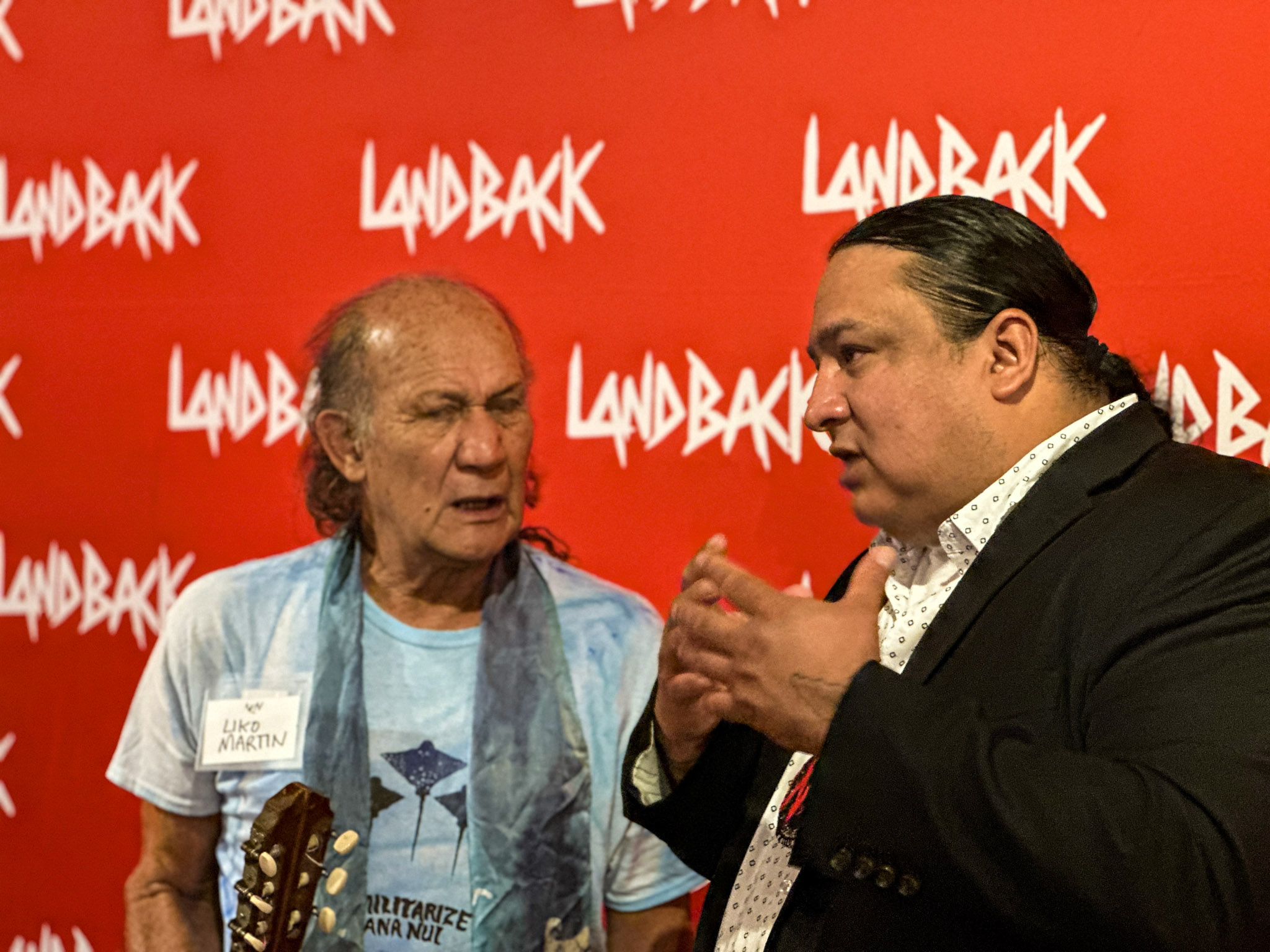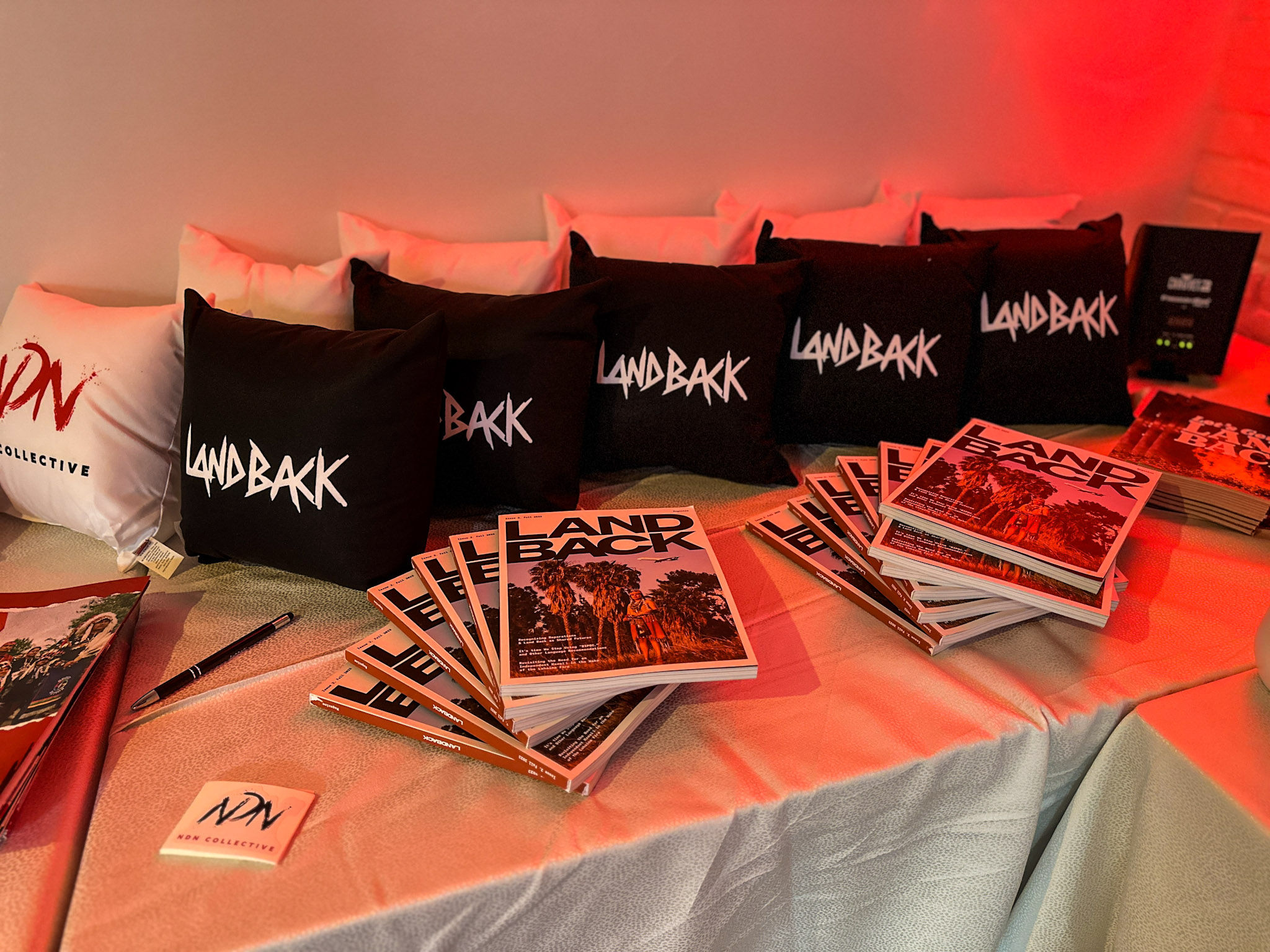
More specifically, NDN Collective is calling on the Department of Justice (DOJ) to investigate the police in Rapid City, where Native Americans make up about 13 percent of the population. Of the seven people killed by law enforcement in the last three years, all of the victims have been Native people. “We’re talking about ending racism in Rapid City,” Holly Cook Macarro, head of Government Affairs for NDN Collective, told the crowd gathered at a hotel not far from the White House. “We’re encouraging a DOJ investigation of the racism in the Rapid City Police Department,” said Cook Macarro, a citizen of the Red Lake Nation. A federal review of Rapid City would not be unprecedented. More than a decade ago, DOJ launched an investigation into Seattle, Washington, after an officer there shot and killed John T. Williams, a Native woodcarver. The civil rights inquiry was the first of its kind by the U.S. government. More recently, DOJ found in June that the police department in Phoenix, Arizona, engaged in discrimination against Native people, who represent less than 2 percent of the population. As one example, Native Americans were 44 times more likely than Whites to be cited or arrested for possessing or consuming alcohol. Native people were also detained longer than White suspects for alleged drug offenses, the investigation determined. And DOJ already has experience in Rapid City, a community nestled in the sacred Black Hills that were promised to the Sioux Nation by that broken treaty. In 2022, the federal government sued a local business and its owners for engaging in “racially discriminatory policies and practices” against Native people. The Grand Gateway Hotel and an adjoining venue had denied service to Native people, with one of the owners justifying it because she couldn’t tell the “nice ones from the bad natives.”In Rapid City, Native Americans represent about a tenth of the population but nearly 60% of those who have died in fatal encounters with law enforcement since 2007, according to an analysis of reports from DCI, https://t.co/8WFvBSya64#rapidcityvsracism #NDNCollective
— NDN Collective (@ndncollective) June 13, 2024
But while Attorney General Merrick Garland, the leader of the DOJ, announced a settlement to the lawsuit during the White House Tribal Nations Summit last year, NDN Collective has not given up its fight against the business — even as the owners entered into bankruptcy proceedings on the eve of a civil rights trial that was supposed to start in federal court last week. “There’s a cost for racism,” Tilsen said at a press conference on September 9 that was called to address the delay in the lawsuit caused by the bankruptcy filing. “When you become morally bankrupt due to racism, it could lead to you becoming financially bankrupt,” Tilsen added. NDN Collective’s fight against racism brought the non-profit to Washington, D.C., this week for a series of meetings with key government officials. Tilsen told Indianz.Com that a session with DOJ was productive, especially since countless Native people have come forward with stories of mistreatment at the hands of police in Rapid City. The work in Rapid City extends to the greater Black Hills, where NDN Collective is calling for the return of the treaty territory to the Sioux Nation. Tilsen said a meeting with Secretary of the Interior Deb Haaland, who is the first Native person to serve in a presidential cabinet, was particularly significant. “Just yesterday, we had this surreal moment in Secretary Deb Haaland’s office,” Tilsen said at the gathering at the Eaton Hotel. “In that space, we presented her with a Land Back flag.”"That kind of conduct is obviously unacceptable": Attorney General Merrick Garland discusses business that discriminated against Native customers. Grand Gateway Hotel/Cheers Sports Lounge & Casino must apologize to Native people for conduct that led to federal lawsuit. #WHTNS #DC pic.twitter.com/8fVV2FV7Fk
— indianz.com (@indianz) December 7, 2023

Amid its efforts, the organization, which Tilsen founded in 2018, has come under scrutiny in the nation’s capital. In July, Sen. Shelley Moore Capito (R-West Virginia) released a report calling NDN Collective a “radical activist group” that has received federal funds under the Inflation Reduction Act, a law that Democratic President Joe Biden and his administration have repeatedly taken credit for. “In our oversight of the Democrats’ Inflation Reduction Act, we’ve found over and over again that the law is quietly bankrolling extremist groups like the NDN Collective that openly advocate for anti-American, anti-police, and anti-Semitic causes, which have nothing to do with protecting the environment,” Capito said in releasing the eight-page report in her position as the highest-ranking Republican on the Senate Committee on Environment and Public Works. NDN Collective has not publicly addressed the report but Cook Macarro told Indianz.Com that the group met with members of the committee to explain how grants and other funds are being spent. She said the discussions have been productive.🚨NEW🚨 @SenCapito is exposing another radical group getting $$ from the Dems’ “Inflation Reduction Act.”
— EPW Republicans (@EPWGOP) July 23, 2024
Their positions:
❗️America is “an enemy”
❗️“We DO support defunding the police and U.S. military”
❗️Israel is a “so-called state”
FULL REPORT: https://t.co/kHX7nU8dAl pic.twitter.com/szNb4JtEvS
Native America Calling: Remembering Ben Nighthorse Campbell and Harvey Pratt
President Trump vetoes tribal homelands bill with swipe at trust relationship
Native America Calling: The Pleiades star cluster ushers in winter story season
NAFOA: 5 Things You Need to Know This Week (January 5, 2026)
Native America Calling: Native in the Spotlight with Elaine Miles
Native America Calling: Gearing yourself up for 2026
Statement: Chairman of Miccosukee Tribe on veto of homelands bill
Native America Calling: Lumbee Nation secures its sovereign status
Chuck Hoskin: Cherokee Nation builds on tradition with technology
Native America Calling: The Year in Native News
Native America Calling: Native music in 2025
Native America Calling: Amid Greenland’s independence push, Denmark accounts for colonial blunders
Senate Committee on Indian Affairs sets business meeting and hearing
Native America Calling: Saving historic architecture and other important places
More Headlines